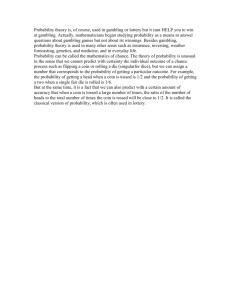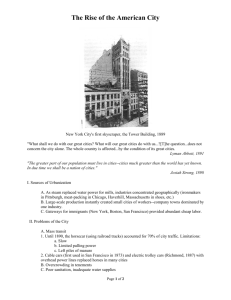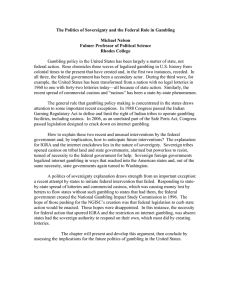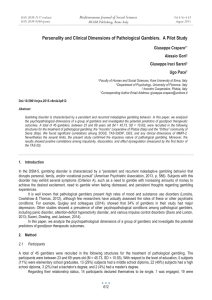A Neuropsychiatric Perspective on Gambling and Morality” Yale University
advertisement
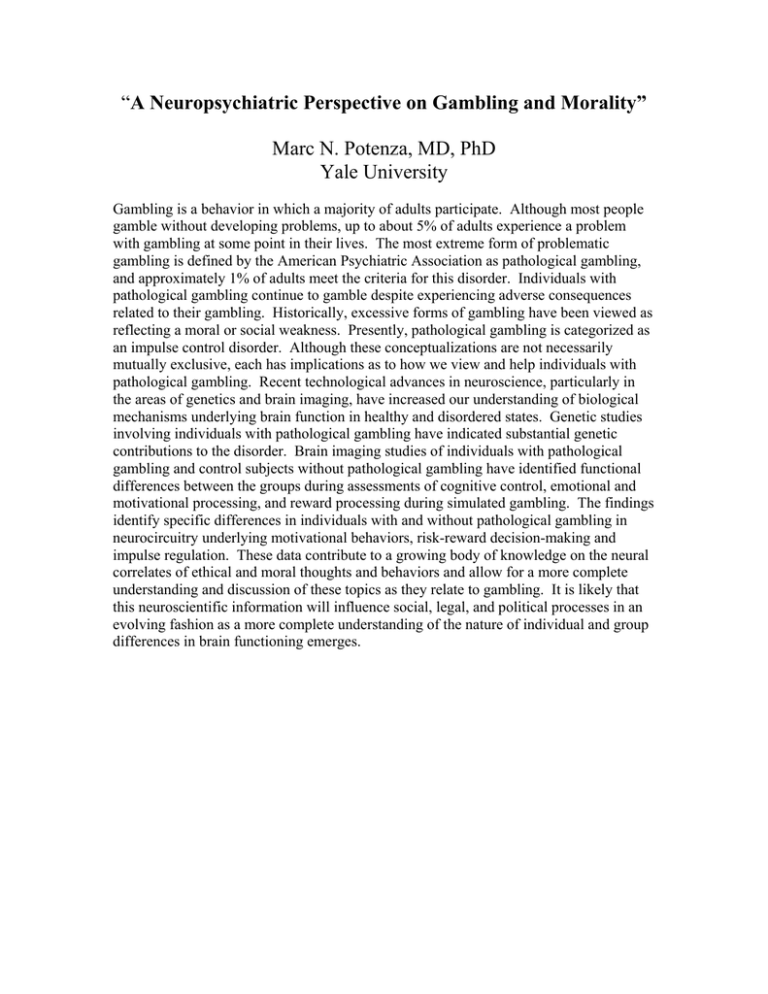
“A Neuropsychiatric Perspective on Gambling and Morality” Marc N. Potenza, MD, PhD Yale University Gambling is a behavior in which a majority of adults participate. Although most people gamble without developing problems, up to about 5% of adults experience a problem with gambling at some point in their lives. The most extreme form of problematic gambling is defined by the American Psychiatric Association as pathological gambling, and approximately 1% of adults meet the criteria for this disorder. Individuals with pathological gambling continue to gamble despite experiencing adverse consequences related to their gambling. Historically, excessive forms of gambling have been viewed as reflecting a moral or social weakness. Presently, pathological gambling is categorized as an impulse control disorder. Although these conceptualizations are not necessarily mutually exclusive, each has implications as to how we view and help individuals with pathological gambling. Recent technological advances in neuroscience, particularly in the areas of genetics and brain imaging, have increased our understanding of biological mechanisms underlying brain function in healthy and disordered states. Genetic studies involving individuals with pathological gambling have indicated substantial genetic contributions to the disorder. Brain imaging studies of individuals with pathological gambling and control subjects without pathological gambling have identified functional differences between the groups during assessments of cognitive control, emotional and motivational processing, and reward processing during simulated gambling. The findings identify specific differences in individuals with and without pathological gambling in neurocircuitry underlying motivational behaviors, risk-reward decision-making and impulse regulation. These data contribute to a growing body of knowledge on the neural correlates of ethical and moral thoughts and behaviors and allow for a more complete understanding and discussion of these topics as they relate to gambling. It is likely that this neuroscientific information will influence social, legal, and political processes in an evolving fashion as a more complete understanding of the nature of individual and group differences in brain functioning emerges.


